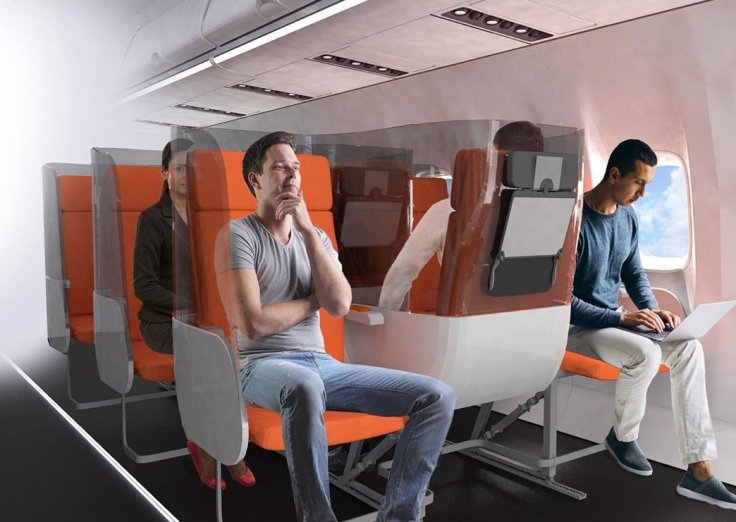The Coronavirus pandemic has its hardest impact on airline companies around the world. As they incur huge losses with global traffic down by almost 80 percent, they are desperate for governments to lift the international flight ban and resume complete operations. But with the pandemic in full swing, the safety of passengers in a crowded aircraft still remains a worry. Hence, airlines are now looking at solutions including redesigning the cabin so that it won't compromise passengers' health.
Initially, healthcare experts suggested that middle seats must be vacant in addition to passengers wearing a face covering. But an airline needs each flight to have at least 70 to 80 percent occupancy to make a profit and keeping the middle seat empty will further increase their losses. So, how are airlines going to solve the problem?

Cabin Makeover
Many airlines nudged the idea of infection in a flight, stating that aircraft are equipped with HEPA filters. But there have been breakouts. Recently, on a TUI AG flight from Greece to the U.K., 16 passengers were tested positive, forcing all 187 travelers and six crew members to be isolated.
With a COVID-19 vaccine probably a few months away, the solution is a cabin makeover that suits air travel during a pandemic. Many companies have come up with answers that include barriers between seats, ultra-violet light cleaning and change in seat fabric.
So, the next time you fly if your government decides to lift international travel restrictions, you may have a completely different experience. Recaro Aircraft Seating, an aircraft seat manufacturer, is already getting inquiries for seat modifications.
"Even if airlines aren't going to buy new planes, they might go for new cabins that are more comfortable or adapted to COVID," Recaro's Chief Executive Officer Mark Hiller told Bloomberg.
Design Modifications
Many airlines are pressing on design modifications that would allow social distancing (not a meter though). Like you have noticed in restaurants around the world, a fiber canopy is one solution that would keep passengers apart rather than an elbow-to-elbow gap. Some have come up with a privacy divider between seats that would keep passengers apart.
For example, PriestmanGoode's Pure Skies Zone is offering a redesigned seat that would offer better protection. The seats for an economy class will have a barrier to keep each row apart while seats are designed to give passengers a little distance from each other. An Italian company, Aviointeriors' design modification allows a reverse middle seat with plastic dividers keeping passengers apart.
Technological Innovations
While redesigning is one solution for economy class, many designers have come up with technological innovations to keep passengers safe from Coronavirus infection. A British company PriestmanGoode has introduced UVC and heat to sanitize seats. Its business class seats are built with "photochromic and thermochromic inks" that change color when sanitized with UV light and heat. Once the seat is used, it will return to the original color. So, passengers will know if the seat is sanitized.
An American start-up Zephyr Aerospace has proposed a double-decker solution for premium economy class for social distancing besides sky couch. While both offer social distancing, a double-decker solution isn't seen practical in regular aircraft. But the sky couch concept has already been implemented by Air New Zealand for privacy and safety long before the pandemic began, in 2011.
Anna Meyer, PriestmanGoode's spokesperson said that the company already received interests from airlines. "There is a clear consensus in the industry that change needs to happen, that the aviation industry is in a state of flux and that for the long-term health of the aviation business, we need to start developing new ideas," Meyer told Washington Post.









